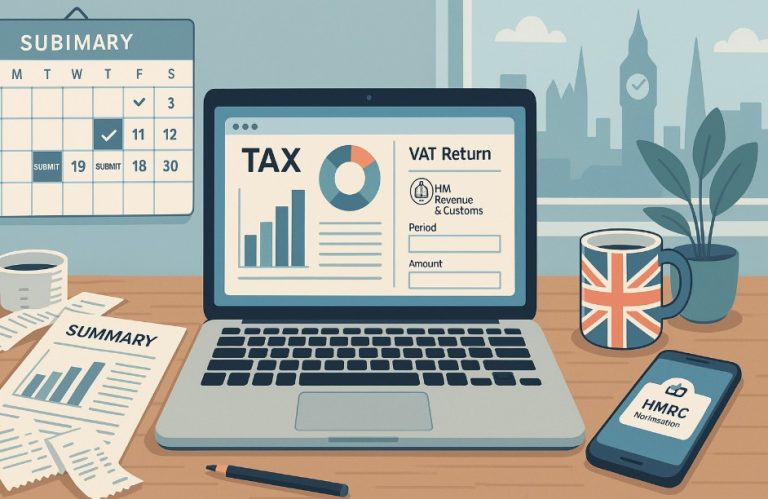When Do Startups Generally Pay Dividends?
What happens when a startup begins generating revenue? Should it reward its shareholders immediately with dividends, or reinvest that income to pursue growth?
These are questions many founders and early-stage investors face. While dividends are a common practice among established companies, they remain a rare feature in the startup ecosystem, particularly in the UK, where early-stage ventures are usually focused on market penetration and growth over immediate returns.
So, when do startups generally pay dividends, and under what conditions does this become viable? This article explores the financial, strategic, and legal considerations involved in dividend issuance by startups.
What Is a Dividend in the Context of a Startup?

A dividend is a portion of a company’s profit distributed to its shareholders. In startups, this concept functions similarly to how dividends operate in large, public corporations.
When a business generates a profit, it can either reinvest that money into the business or distribute it to its shareholders. The latter route is what we refer to as a dividend payout.
Dividends are typically paid as a fixed amount per share owned. For instance, if a startup declares a dividend of £0.25 per share and an investor holds 5,000 shares, they would receive £1,250.
However, such payouts are far more common in mature, stable businesses than in early-stage ventures. Startups are usually in a high-growth phase and need substantial capital to fund product development, marketing, operations, and team expansion. As a result, profits if they exist are often reinvested rather than distributed.
Why Are Dividends Rare in Early-Stage Startups?
Startups are generally built to scale quickly rather than generate immediate profitability. The primary objective in the first few years is market share, brand visibility, and product or service refinement—not returning profits to shareholders. This makes dividend distribution an uncommon practice during the initial stages.
There are several reasons behind this:
- Capital Intensity: Startups typically require ongoing capital to innovate and grow. Many rely on multiple funding rounds like seed, Series A, B, and so on to finance their growth strategies.
- Profit Deficit: In the early years, most startups operate at a loss. Even those generating revenue often see negative net income due to high operational and developmental costs.
- Growth Prioritisation: Any available profits are usually channelled into business development activities, such as entering new markets, building infrastructure, or acquiring customers.
It’s not that dividends are discouraged in principle; they simply don’t align with the financial goals or structure of a startup in its formative years.
When Do Startups Typically Begin Paying Dividends?
The decision to pay dividends usually emerges later in the startup lifecycle. When a company has successfully transitioned from early-stage operations to a stable business model, it may consider issuing dividends, especially if the need for aggressive reinvestment has diminished.
Several indicators signal that a startup may be ready for dividend payments:
| Indicator | Explanation |
| Consistent Profitability | The company shows stable, recurring profits over multiple quarters or years. |
| Cash Flow Surplus | Operational cash flow exceeds the capital needed for reinvestment. |
| Mature Market Position | The startup has captured sufficient market share and is no longer pursuing aggressive expansion. |
| Reduced Capital Expenditure | Product development and infrastructure build-up are largely complete. |
| Investor Alignment | Shareholders and directors agree on distributing profits as dividends. |
In the UK, some startups begin to issue dividends as early as their fourth or fifth year, although the more typical timeframe is after six or seven years, particularly in industries like SaaS or fintech where profitability may be reached sooner.
What Do Startups Usually Do With Their Profits?

In most scenarios, startups prefer to reinvest any profits back into the business. This strategy helps them achieve larger scale and long-term value, which often delivers higher returns for shareholders through company valuation rather than income payouts.
Common areas where profits are reinvested include:
- Expanding product features or service offerings
- Entering new geographic or demographic markets
- Hiring specialised talent
- Scaling sales and marketing operations
- Upgrading technology or infrastructure
Reinvestment supports growth and builds equity value, which is more aligned with the expectations of venture capitalists and early investors than dividend income.
What Role Do Investors Play in the Dividend Decision?
Investor expectations significantly shape whether or not a startup can issue dividends. Most venture capitalists (VCs) and angel investors invest with the goal of capital appreciation, not income generation. They expect returns through increased company valuation, leading to a profitable exit via IPO, acquisition, or share buyback.
Startups often enter into shareholder agreements during funding rounds, which may explicitly limit the ability to pay dividends. These clauses are intended to ensure that capital is used for business expansion rather than for shareholder distribution.
However, in some later-stage or bootstrapped startups, where funding comes from personal savings or revenue investors may be more open to receiving dividends once the company reaches financial stability.
What Are the Legal Requirements for Dividends in the UK?

In the United Kingdom, the ability of a company to pay dividends is tightly regulated. According to the Companies Act 2006, dividends can only be paid out of distributable profits. These are profits shown in the company’s accounts that are available after all liabilities and obligations have been accounted for.
Legal and financial conditions include:
- The company must have positive retained earnings.
- Dividends must be formally declared by the board of directors.
- The business must remain solvent after the dividend is paid.
- The company must prepare relevant financial statements justifying the distribution.
Failing to meet these criteria could lead to the dividend being considered illegal, resulting in penalties or liability for directors.
Are There Tax Implications for Startup Dividends in the UK?
Yes, dividends are taxed differently from salaries or bonuses. For UK shareholders, as of the 2024/25 tax year, the first £1,000 of dividend income is tax-free. After that, the rates depend on the individual’s income tax bracket.
| Income Bracket | Dividend Tax Rate |
| Basic Rate | 8.75% |
| Higher Rate | 33.75% |
| Additional Rate | 39.35% |
For startups considering dividend payments, understanding the tax position of their shareholders is crucial. Distributions might be attractive to some investors but less so to those already in higher tax brackets.
Do Any UK Startups Actually Pay Dividends?
While rare, there are UK startups that choose to distribute dividends under specific circumstances. These are often businesses that are bootstrapped, financially mature, and operate in stable sectors.
For example, a Midlands-based eCommerce startup began issuing dividends in its seventh year after achieving consistent net profits and having no immediate need for further capital expenditure. The company maintained its growth trajectory while offering a modest annual return to its original investors.
In another case, a London-based software firm, having avoided external investment, used dividends as a mechanism to reward its founding team and early employees once profitability became predictable.
Can Premature Dividends Harm a Startup?

Yes, issuing dividends too early can significantly hinder a startup’s growth. It may reduce available working capital, restrict the ability to respond to market opportunities, and create tensions with investors who prioritise scaling over income distribution.
Potential risks include:
- Liquidity issues if market conditions shift unexpectedly
- Reduced ability to hire talent or invest in R&D
- Lower company valuation due to missed expansion opportunities
Startups must conduct thorough financial analysis and consult with stakeholders before making such decisions.
How Can a Startup Decide If It’s Ready to Pay Dividends?
Startups can assess their dividend readiness by evaluating a few essential financial and strategic factors:
| Factor | Consideration |
| Profitability | Are profits consistent across several quarters? |
| Reinvestment Priorities | Are there pressing needs for capital in the short term? |
| Cash Flow Stability | Is there a buffer for unexpected downturns? |
| Shareholder Alignment | Do all major stakeholders agree on dividend distribution? |
| Legal Compliance | Are financial statements in line with Companies Act requirements? |
If the answers point to stability, maturity, and aligned expectations, a dividend policy might be appropriate.
Conclusion: Should a Startup Pay Dividends?
For most startups, dividends are not part of the early financial roadmap. The primary objective is growth, reaching a point where the business is self-sustaining and valuable enough to provide returns through capital gains rather than income distribution.
However, once profitability is stable and reinvestment needs are minimal, dividend payouts may become a sensible strategy. Founders and investors must weigh the financial health of the company, its long-term goals, and shareholder alignment before making this critical decision.
In the UK, this choice is further framed by legal requirements and tax considerations that must be managed carefully to avoid unintended consequences.
FAQs About Startup Dividends
Are dividends common during the first few years of a startup?
No. Startups are typically focused on growth and tend to reinvest profits rather than distribute them.
How do founders earn returns if no dividends are paid?
Returns often come through equity appreciation and liquidity events such as acquisitions or IPOs.
Can UK startups pay dividends if they are not profitable?
No. Dividends can only be paid from retained profits, not from borrowed funds or capital.
Do bootstrapped startups pay dividends more frequently?
They may do so more often than VC-funded startups, particularly if they reach profitability early and have no external pressure to scale aggressively.
Is dividend income taxed differently in the UK?
Yes. Dividend income is taxed at lower rates than salary, and the first £1,000 is tax-free.
Are there industries where startup dividends are more likely?
Yes. Sectors like SaaS, professional services, or low-capex tech may become profitable sooner and consider dividends earlier.
What’s the danger of paying dividends too soon?
It can jeopardise financial stability, hurt future growth, and conflict with investor goals.







